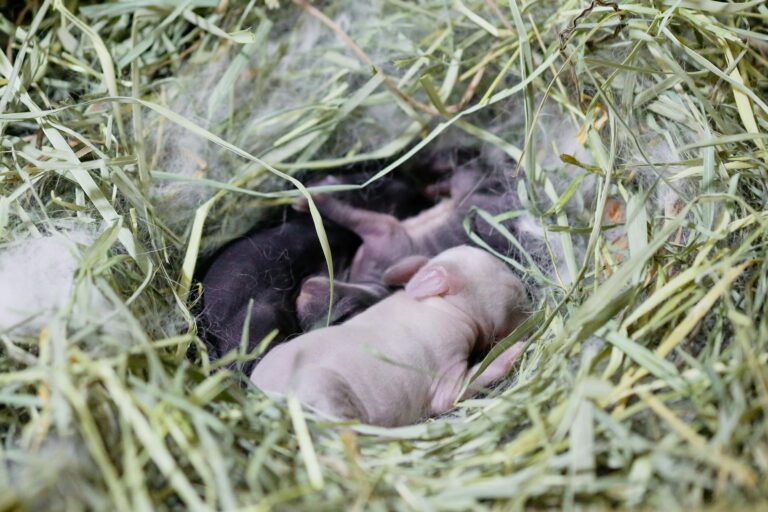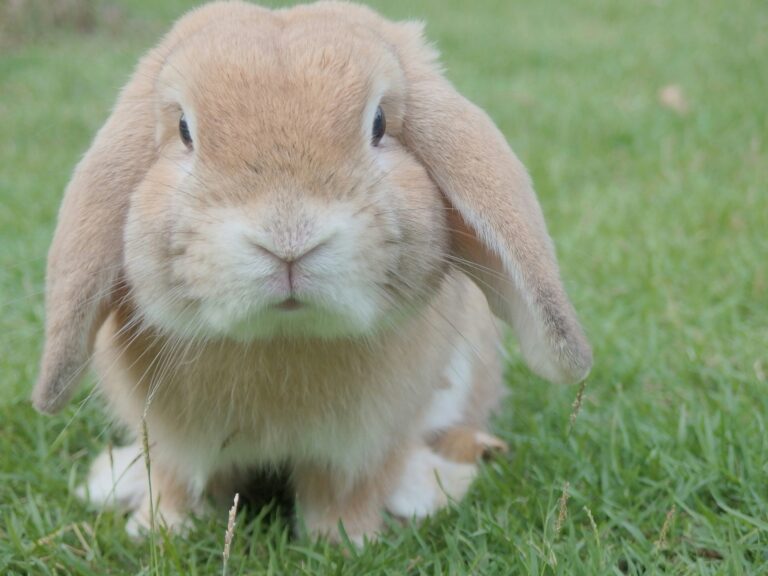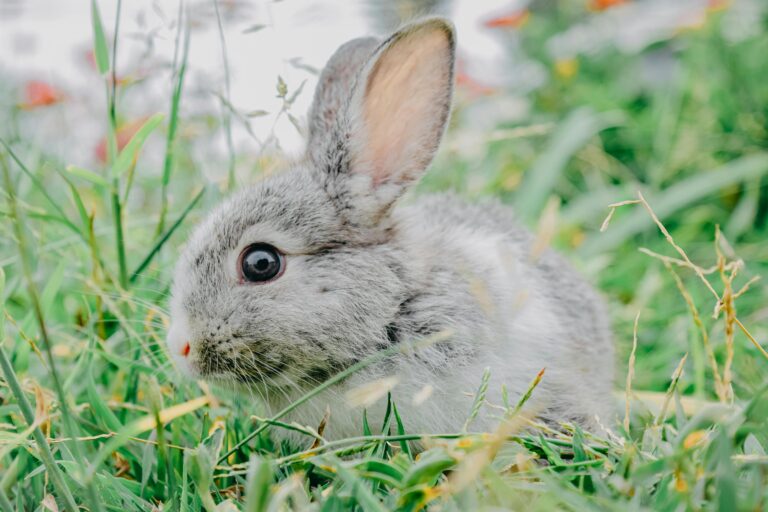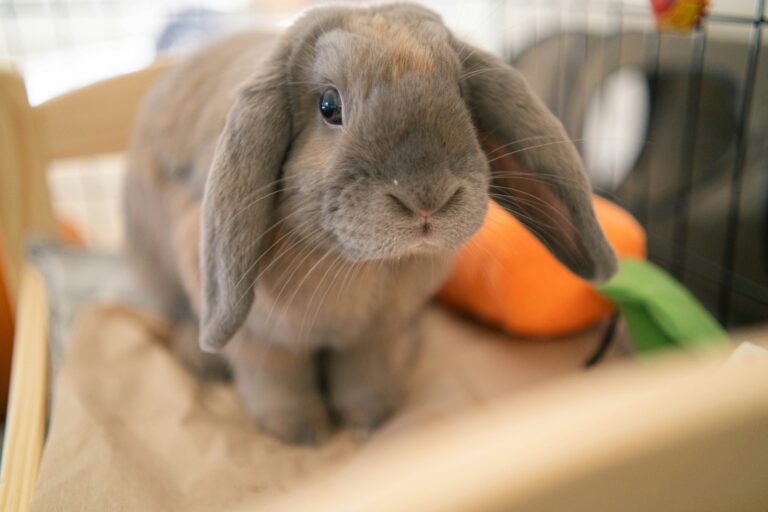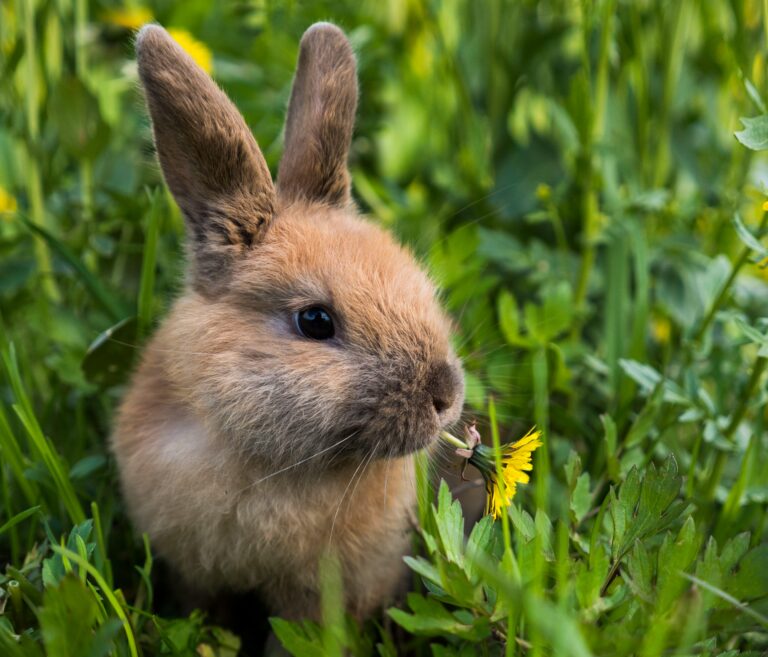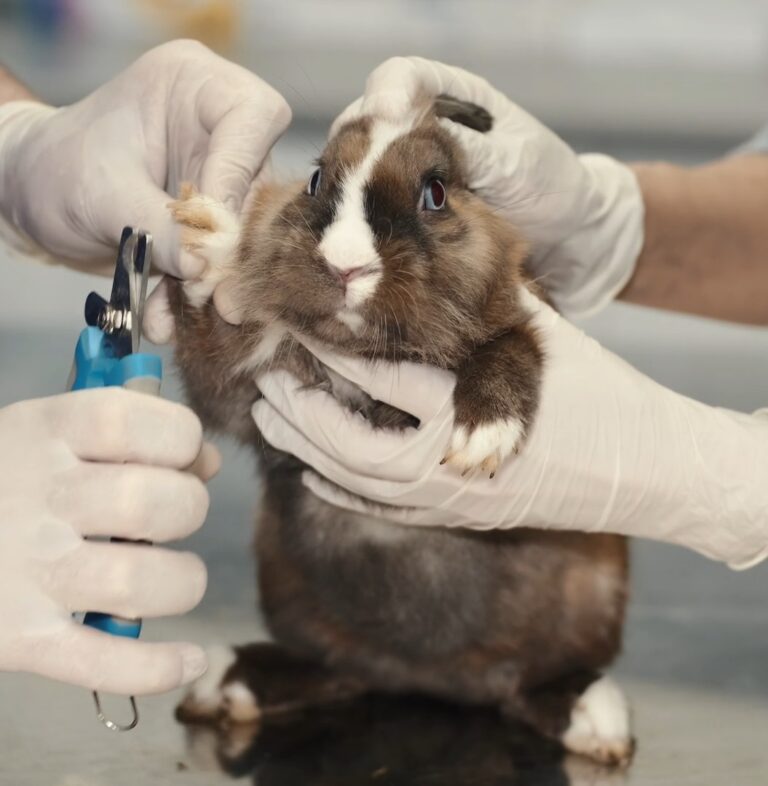The Ultimate Guide to Basic Rabbit Care
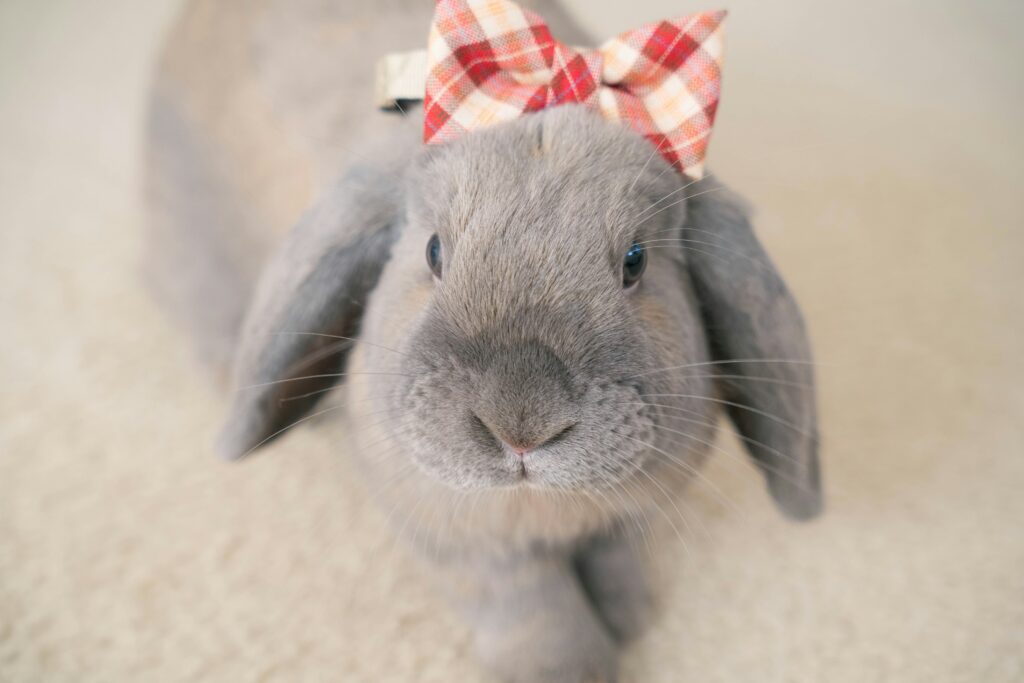
Welcoming a pet rabbit into your home is a delightful experience filled with joy and excitement!
These adorable creatures make wonderful companions, but like any pet, they require proper care and attention to thrive.
In this guide, we’ll cover all the essentials of rabbit care, from housing and diet to grooming and exercise requirements, ensuring that you provide the best possible care for your furry friend.
Housing: Creating a Safe and Comfortable Home
The first step in caring for your pet rabbit is providing a suitable living environment. Here’s what you need to consider:
Indoor vs. Outdoor Housing: While some rabbit owners choose to keep their pets indoors, others opt for outdoor hutches or enclosures. Whichever option you choose, ensure that the space is secure, well-ventilated, and protected from predators and extreme weather conditions.
Size and Layout: Rabbits are active animals that need plenty of space to move around. A spacious cage or hutch with separate areas for sleeping, eating, and litter boxes is ideal. Additionally, provide platforms, tunnels, and toys to encourage exercise and mental stimulation.
Bedding and Litter: Choose a safe and absorbent bedding material, such as hay or paper-based bedding, for your rabbit’s comfort. Use a litter box filled with rabbit-safe litter to encourage proper elimination habits.
Diet: Feeding Your Rabbit a Nutritious Diet
A well-balanced diet is essential for your rabbit’s health and well-being. Here’s what you need to know about feeding your pet rabbit:
Hay: Hay should make up the majority of your rabbit’s diet. Offer unlimited access to fresh, high-quality grass hay, such as Timothy, orchard grass, or meadow hay, to promote dental health and proper digestion.
Pellets: Provide a portion of rabbit pellets daily to ensure that your rabbit receives essential nutrients. Make sure the amount you are feeding is suitable for the size of your rabbit. Choose high-quality pellets specifically formulated for rabbits and avoid mixes with seeds and dried fruits, which are high in sugar and fat.
Fresh Vegetables: Supplement your rabbit’s diet with a variety of fresh vegetables, such as leafy greens (e.g., kale, romaine lettuce, cilantro), carrots, bell peppers, and broccoli. Introduce new vegetables gradually to avoid digestive upset.
Treats: Limit the amount of treats in your rabbit’s diet, as excessive treats can lead to obesity and other health issues. Offer small portions of rabbit-safe fruits, such as apples, strawberries, and blueberries, as occasional treats.
Grooming: Keeping Your Rabbit Clean and Healthy
Regular grooming is essential for maintaining your rabbit’s health and hygiene. Here are some grooming tips for pet rabbit care:
Brushing: Brush your rabbit’s fur regularly to remove loose hair and prevent matting. Use a soft-bristled brush or a grooming mitt designed for rabbits, and be gentle, especially around sensitive areas like the belly and ears.
Nail Trimming: Trim your rabbit’s nails every 4-8 weeks to prevent overgrowth and discomfort using a pair of pet nail clippers. Check out our nail trimming guide here if you are new to trimming nails or want some extra guidance!
Ear Cleaning: Check your rabbit’s ears regularly for signs of dirt, wax buildup, or mites. Clean the outer surface of the ears with a damp cloth or cotton ball, but avoid inserting anything into the ear canal, as it can cause injury.
Bathing: Rabbits are fastidious groomers and rarely need baths. However, if your rabbit gets dirty, use a damp cloth or unscented baby wipes to spot-clean soiled areas. Avoid bathing your rabbit in water unless absolutely necessary, as it can cause stress and respiratory problems.
Exercise: Promoting Physical and Mental Stimulation
Regular exercise is essential for keeping your rabbit healthy and happy. Here’s how to provide adequate exercise for your pet rabbit:
Free-Roaming Time: Allow your rabbit to explore and exercise outside of their enclosure in a rabbit-proofed area of your home. Supervise your rabbit during free-roaming time to ensure their safety and prevent them from chewing on wires or getting into hazardous items.
Toys and Enrichment: Provide a variety of toys and enrichment activities to keep your rabbit mentally stimulated and engaged. Offer chew toys, tunnels, cardboard boxes, and puzzle feeders to encourage natural behaviors like chewing, digging, and foraging!
Social Interaction: Spend quality time with your rabbit daily, interacting with them through gentle petting, grooming, and play. Rabbits are social animals that thrive on companionship, so consider adopting a bonded pair if possible to prevent loneliness and boredom.
Conclusion: Providing the Best Care for Your Pet Rabbit
Caring for a pet rabbit requires commitment, patience, and love!
By providing a safe and comfortable living environment, a nutritious diet, regular grooming, and plenty of opportunities for exercise and enrichment, you can ensure that your rabbit lives a happy and fulfilling life as a cherished member of your family.
Remember to consult with a veterinarian experienced in rabbit care for guidance on any specific health concerns or questions you may have.
With proper care and attention, your pet rabbit will thrive and bring joy to your life for years to come!

